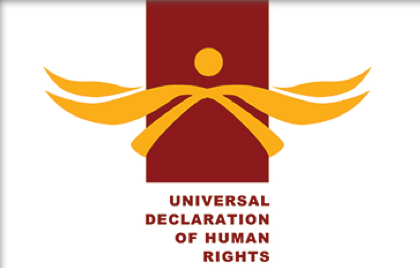case 1: account closure
Cashless banks have no vault and no cash services apart from the ATMs. ATMs in Europe never handle denominations smaller than €20. This means that even when you are closing an account at a cashless bank, the most you can pull out is a multiple of €20 from your balance. The bank expects you to open an account somewhere else first and transfer the remainder to the other account. This is to keep people trapped in the banking system.
It seems to violate article 17 ¶2:
- Everyone has the right to own property alone as well as in association with others.
- No one shall be arbitrarily deprived of his property.
This is not exactly up there with genocide and torture. It’s perhaps the smallest human rights infraction I can think of. But nonetheless, banks should be structured to comply with human rights no matter how trivial, no? It seems like even a cashless bank should (in effect) be required to keep some petty cash on-hand for account closures.
case 2: withdrawal limits
The same question applies for bigger cases. E.g. a bank (cashless or not) may have a daily withdrawal limit; weekly, and monthly too. Perhaps it is fair enough to have a fee or penalty for exceeding their limits, but if I understand correctly the bank has a human rights obligation to allow you to withdraw all your money. At the moment banks with limits simply refuse to execute withrawals that exceed their limits.
case 3: card refusal
ATMs and shops refuse people access to their money for countless arbitrary reasons.
- When a customer’s ID card copy on the bank’s files expires, some banks do not bother to inform the customer or request an updated copy. They just freeze the account. When money is denied, the customer magically presents themselves to the bank to find out why. Cutting off access to funds is the bank’s way of communicating.
- ATMs reject cards for undisclosed reasons. Sometimes a faulty AI bot falsely triggers and claims a transaction looks fraudulent. Sometimes ATMs are discriminating against people based on their origin (locally issued cards get a higher limit than foreign ones, but the ATM does not tell the customer what the limit is or why their transaction is denied).


Liquid property like this can get vague in a million different ways, you’ve barely scratched the surface. Like, literally all stocks are is a legal right to the proceeds of some enterprise, nothing more.
Law isn’t just decided based on the literal text, but also on what the implications of interpreting it a certain way would be. In English law this is called the golden rule: if an interpretation would lead to chaos and absurdity, don’t do that. Since we like having a financial system, I doubt the argument that “property rights” means everything must be made convertible to cash in every situation would hold water in any court. IANAL
Also consider that cash itself is a construct. The special legal status it has in many jurisdictions might offer a different route to defending it, though. Notes being “legal tender” means that you should in theory be able to pay cash at every establishment, for example.
I always interpreted legal tender not to be a mandate to accept that form of payment in general, but rather a formally recognized method for resolving debt in the event of legal dispute.
This depends on the country.
In the US: legal tender has different charactoristics depending on whether it is point of sale (PoS) or debt. W.r.t PoS, legal tender ensures the seller can accept it if they want, but have the option. W.r.t debts, legal tender entitles debtors to be able to use it for payment.
In Belgium: there is no distinction between PoS and debts. It’s as CanadaPlus says… Legal tender must be accepted either way. But there are some exceptions: if the seller and buyer are not in the same physical place at the same time, there is no obligation to accept cash. Sellers/creditors can also reject banknotes that are disproportionate to the transaction amount. The bizarre thing about Belgium is there are various circumstances where a debtor only has cash but a creditor can refuse it, e.g. if they have no physical presence. In practice it’s even worse because some business simply break the law by refusing cash, and it’s not enforced.
TIL!